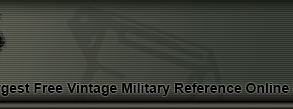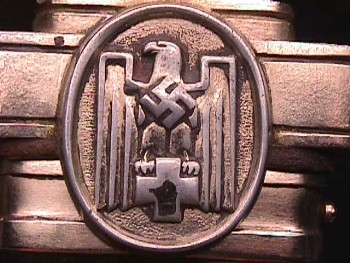
WWII GERMAN DAGGER - RED CROSS
The red cross, also known as DRK dagger, was introduced in 1938. There were two types of styles, the
leader dagger and subordinate Hewer.
The front of the dagger has an oval shape with an eagle holding a cross. The back of the hand guard has
the same shape but it does not have any designs on it.
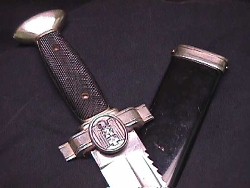
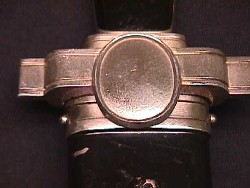
The handle of the dagger is made from plastic. The front of the handle is checkered while the back is smooth
and shiny. The handle is secured to the tang via two screws which goes through each handle. One side shows the
screw heads (bottom-right) while the other side shows the screw tip (bottom-left).
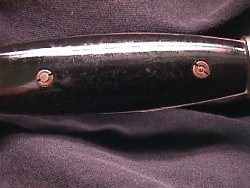
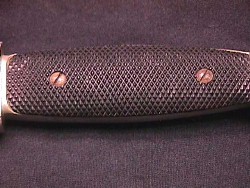
The scabbard is painted in black enamel, it is very heavy, smooth and has a high shine. A stud was welded to its back to
allow the dagger to be carried on a belt in a similar fashion as some bayonets. The tip and throat of the scabbard consisted
of nickel fittings (pre-war) or plated pot metal. The tip fitting is a dome-like shape.
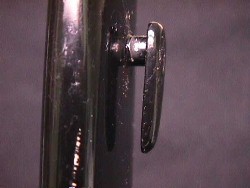
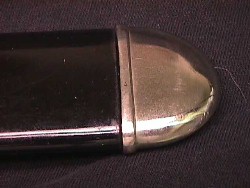
The blade is one of the most unique aspects of this dagger. The back of the blade is serrated and the tip
is blunt. The pictures that follow provide a clear view of the characteristics of a blade.
This is an identification guide for the Red Cross daggers employed during the Third Reich.
Multiple photos and descriptions are provided to enhance the understanding of this
interesting collectible. A price guide is included to illustrate the value of the
daggers in the collector's market.
|
This page is a recognition and identification guide for German bayonets. Multiple
detailed photos of a specific sample are provided. Descriptions point out specific
points that should be noted.
One of the most commonly asked questions is "How much is my German bayonet worth?".
A price guide is included here to address this question. The value of the Nazi bayonets is
reviewed over a period of several years. A trend can be observed. The present worth
of the police sword in the collector's market is illustrated.
This service is provided free of charge to the visitor/enthusiast courtesy of
MilitaryItems.com,
a company dedicated
to the preservation of military history and to providing quality military antiques and
collectibles to museums, institutions and the general public.
|
|
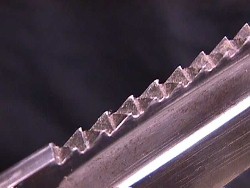
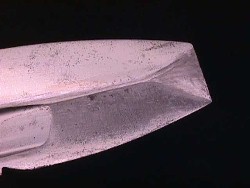
Traces of sharpening can be seen on the blade. Unfortunately many of the GIs who brought back the
daggers as souvenirs would try to use them as regular knives. Another feature of the blade is the manufacturer's brand. Although
not easily visible due to the construction of the hand guard, it can be distinguished on the bottom right-hand photograph.
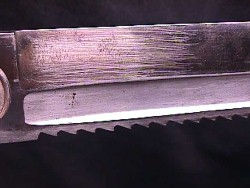
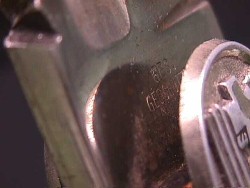
Many German edge weapons are currently
reproduced.
It is becoming more difficult to be able to tell the fake ones from the real ones because
the quality of the reproductions is improving. The collector must become familiarized with
the construction style and materials employed in the manufacturing of this item.
Attention to the details is critical in order to be able to determine the authenticity of
the collectible.
If you have an interest is seeing other edge weapons of the Third Reich, you can do so by going
to our
WWII German daggers and Swords
identification guide, Where we cover blades from the Heer (Army), Navy (Kriegsmarine), Air Force
(Luftwaffe) and other organizations.
| 

